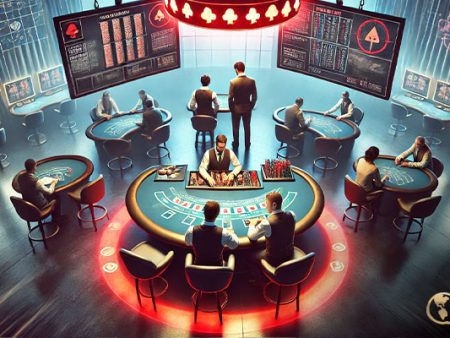Hawaii has long been an outlier in the United States when it comes to gambling regulations, holding firm to its ban on all forms of betting. Despite repeated attempts in recent years to change this, lawmakers in the state have once again introduced a series of bills aimed at legalizing certain forms of gambling, including sports betting and fantasy sports. However, given Hawaii’s historically cautious stance on gambling, the path to legalization remains uncertain.
A new wave of gambling proposals:
The 2025 legislative session has seen a number of bills that propose different models of legal gaming, including online sports betting, fantasy sports, and even casino-style gaming. Among the most notable proposals is Senate Bill 373 (SB 373), introduced by Senator Angus McKelvey (D-Maui) and co-sponsored by Senators Joy San Buenaventura (D-Puna) and Glenn Wakai (D-Oahu). The bill seeks to legalize online fantasy sports contests under a regulated framework. If passed, SB 373 would create a system for registering and monitoring fantasy sports platforms through the Department of the Attorney General. Furthermore, the bill would impose a tax on the gross revenues of these platforms, generating revenue for the state.
McKelvey, who has long advocated for a more modern approach to gambling in Hawaii, pointed out that while the state’s laws have been clear on gambling, there is no formal statute against daily fantasy sports. He referenced a 2016 opinion from then-Attorney General Douglas Chin, which had deemed daily fantasy sports contests as illegal under existing laws. “They say it’s gambling. I say it’s not,” McKelvey argued, as reported by Hawaii Tribune-Herald via West Hawaii Today, emphasizing that studies, including one from the Massachusetts Institute of Technology, have shown that fantasy sports require skill, rather than pure chance, making them more akin to games like solitaire, which is legal in Hawaii.
In addition to SB 373, another bill, Senate Bill 1572 (SB 1572), introduced by Senator Lynn DeCoite (D-Maui, Molokai, and Lanai), seeks to establish the Hawaii State Sports Wagering Commission. This commission would be tasked with regulating both retail and online sports betting. SB 1572 would create licensing requirements for sports wagering operators and set a hefty licensing fee of $250,000 for an initial five-year term. The bill also proposes a tax rate of 15% on adjusted gross receipts (AGR) from sports wagers, a higher rate than the 10% proposed in other bills.
Like SB 373, SB 1572 would allow betting on professional sports, but it would not permit wagers on collegiate or high school sports, nor on sports involving animals, such as horse racing. A notable difference in SB 1572 is that it would not include any provisions for fantasy sports, focusing solely on sports wagering. It also explicitly states that sports wagering should not be considered gambling but rather a regulated activity, an important distinction for proponents hoping to legitimize the practice without the stigma associated with gambling.
The financial motivation behind the proposals:
Proponents of these bills argue that legalizing sports betting and fantasy sports could provide significant new revenue streams for Hawaii, especially at a time when the state is looking for ways to recover from the devastating wildfires in Lahaina in 2023. McKelvey, who lost his home in the fires, emphasized that this revenue could help fund recovery efforts and other vital public services, such as education and infrastructure. “I thought it was a way to bring us up to speed with all the other states of the nation, allow us to tap into unrealized tourist revenue, and provide — especially with the federal government conditioning aid now to all sorts of things — trying to create a way for extra investment or extra monies for the Lahaina rebuild,” McKelvey said.
Supporters of the bills also argue that the state could benefit from the large number of Hawaii residents already engaging in online gambling activities. San Buenaventura, another sponsor of SB 373, expressed her belief that regulating and taxing online gambling could be a way to address the issue and generate much-needed revenue. “People are already gambling online, and I want to be able to regulate and tax it,” she stated.
Despite the optimism of proponents, Hawaii’s history of failed attempts to legalize gambling presents a formidable challenge to the passage of these bills. The state has consistently resisted efforts to open up to gambling, largely due to concerns over its social impacts, including the potential for addiction and the undermining of local culture. In 2021, lawmakers considered a variety of gambling proposals, including a state lottery and casino-style gambling. However, none of these bills made it past the legislative hurdles.
Even in 2023, when lawmakers introduced a bill to regulate online sports betting and poker, the proposal failed to gain traction amid opposition from community groups and concerns about problem gambling. In fact, despite strong support for gambling bills in other states, Hawaii’s legal framework and public opinion have remained largely unchanged.
One of the key concerns voiced by critics is the potential for mainland companies, such as DraftKings and FanDuel, to dominate the market and extract revenue from the state without providing significant benefits. Representative John Mizuno, who sponsored a previous bill to regulate sportsbooks, explained that his focus was on local control rather than allowing large corporations to profit without contributing to Hawaii’s economy.
Source link
Vanja Mitic 2025-01-24 12:29:26



















